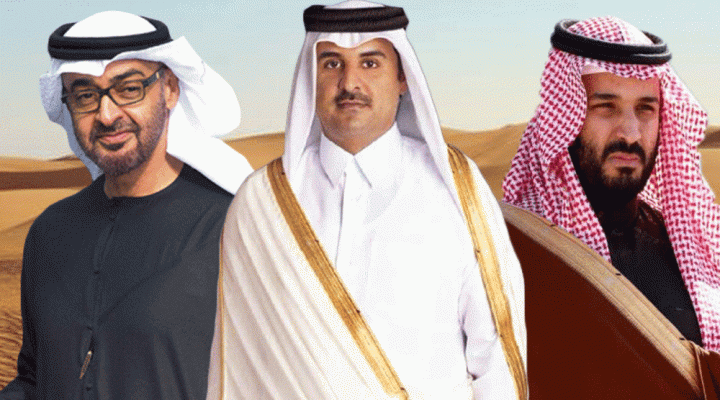Will Saudi Arabia make up with Qatar?

Reconciliation is in the air, but it’s unclear how serious or lasting it may be
The annual Gulf Cooperation Council (GCC) summit, due to be held in Manama this month, is being moved to Riyadh and postponed until 5 January. This suggests there has been some progress in achieving reconciliation between Qatar and the three other GCC members (Saudi Arabia, the UAE and Bahrain) that have been boycotting it. But it also indicates there are still outstanding issues that need to be resolved.
In Gulf political culture, relocating the summit to Riyadh means affirming Saudi Arabia’s position as leader and senior partner of the six-country bloc. By going there for the meeting, the emir of Qatar Sheikh Tamim bin-Hamad Al Thani will be publicly acknowledging that status. This was probably one of the key ‘understandings’ brokered by Kuwait to clear obstacles to a reconciliation.
However, if the output of Qatar’s Al Jazeera channel is any guide, the reconciliation seems set to be a bilateral affair confined to Qatar and Saudi Arabia but not Qatar’s other detractors. The channel’s tone and coverage of developments, the programmes it airs and the talk-show guests it hosts, all point in this direction, at least for now.
Al Jazeera – along with all other directly or indirectly Qatari-controlled media outlets — has been strictly maintaining a truce with regard to Saudi Arabia. The channel has stopped directing any criticism at the kingdom or highlighting negative Western media reports about it as it has done consistently since the crisis began three years ago. But it remains as disparaging as ever about fellow boycotters the UAE, Bahrain and Egypt. It stopped bad-mouthing the UAE for a few days while Jared Kushner, reportedly the chief mover of reconciliation efforts, was visiting the region. But it later reverted to norm, and Qatari twitter accounts affirm there will be no truce with the Emirates.
One can only speculate what will happen in the fortnight between now and the summit. Gulf governments are keeping tight-lipped and releasing no news about the matter. We can only wait and watch for clues in the arrival ceremonies laid on for the leaders taking part. Will the Qatari emir attend in person? If so, how big or festive will the reception he is accorded be? Also, at what level will the UAE be represented? Will its delegation be headed by de facto ruler Sheikh Muhammad Bin-Zayed Al Nahayan or the prime minister Sheikh Muhammad Bin Rashed? Bin-Zayed’s presence would imply the UAE is party to the reconciliation. But if the delegation is headed by the ruler of one of the minor emirates such as Umm al-Quwain or Fujairah, that would mean the quarrel with Qatar is beyond repair – and that the UAE’s relations with Saudi Arabia are not in great shape either.
Regardless whether it is bilateral or comprehensive, questions remain about the nature of the reconciliation. Will Saudi Arabia reopen its borders and airspace to Qatari as Kushner and Trump have been urging? And what will Riyadh get in return? The 13 concessions it originally demanded – including the closure of Al Jazeera, the severing of Qatar’s ties with all branches of the Muslim Brotherhood and Gulf opposition groups, and the dismantling of the Turkish military base it hosts – were rejected by Doha as infringements on its sovereignty.
A further question relates to the issue of normalisation. Will the Saudi-Qatari reconciliation be a prelude to both sides normalising relations with Israel in deference to heavy pressure from the Trump administration?
We have no answers. But we know this self-inflicted crisis has exhausted all parties, and that is why they are now willing to negotiate and make concessions to reach a solution, however long it may last.
When Muhammad Bin-Zayed paid a surprise visit to Cairo a few days ago for talks with President Abdel Fattah as-Sisi, the two sides’ media pronouncements refrained from welcoming the prospect of a reconciliation. This suggests they are not on board, at least not yet. Sources in Cairo say there is serious friction with Riyadh over the issue.
We can only keep watching and reading between the lines to try to ascertain how serious and lasting this reconciliation may prove. GCC summits have been non-events for at least the last five or so years. But this one may prove decisive, not just for the GCC’s cohesion and future but the wider region too, for better or for worse.
https://www.raialyoum.com/index.php/will-saudi-arabia-make-up-with-qatar/
 TheAltWorld
TheAltWorld 
0 thoughts on “Will Saudi Arabia make up with Qatar?”